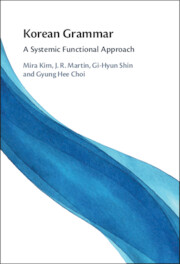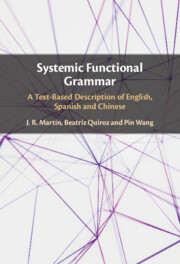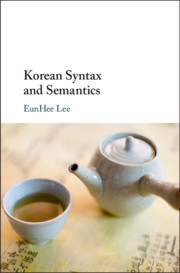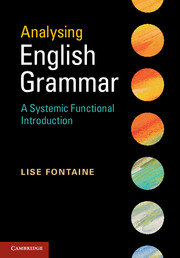Korean Grammar
Using the framework of Systemic Functional Linguistics (SFL), this pioneering book provides the first comprehensive account of Korean grammar, building foundations for an engagement with Korean texts across a range of spoken and written registers and genres. It treats grammar as a meaning-making resource, comprising experiential resources for construing reality, interpersonal resources for enacting social relations, textual resources for composing coherent discourse, and logical resources for linking clauses. It deals not only with clause systems and structures but also focuses on their realisation as groups and phrases (and clause rank particles), and the realisation of these groups and phrases in words (including clitics and relevant suffixation). Its concluding chapter demonstrates how this grammar can be applied – for teaching Korean as a foreign language and for translation and interpreting studies. This book is essential reading for scholars and students of Asian languages and linguistics and functional approaches to grammar description.
- Provides accessible explanations of Systemic Functional Linguistics (SFL) concepts, with examples throughout the book
- Offers a detailed description of Korean at the rank of clause, group/phrase, and word, addressing a major gap in SFL descriptions
- Demonstrates how this grammar can be applied in Korean language teaching and translation/interpreting contexts of application
Product details
March 2023Hardback
9781316515341
280 pages
235 × 155 × 29 mm
0.83kg
Available
Table of Contents
- 1. Introduction to a systemic functional grammar of Korean
- 2. The grammar of groups and phrases in Korean
- 3. The grammar of interpersonal meaning in Korean
- 4. The grammar of experiential meaning in Korean: transitivity
- 5. The grammar of textual meaning in Korean: theme
- 6. The grammar of logical meaning in Korean: clause complexing
- 7. Two applications.










